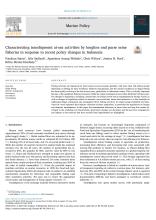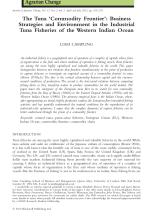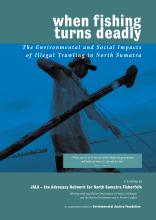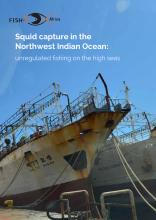Characterizing Transshipment at-sea Activities by Longline and Purse Seine Fisheries in Response to Recent Policy Changes in Indonesia
To combat IUU fishing facilitated by at-sea transshipment, the Indonesian government banned the activity in 2014. Enforcing the ban, however, has been difficult due to the challenges of detecting and monitoring transshipment activities at sea. This study provides a suite of indicators for longline and purse seine fisheries in Indonesian waters as a useful tool to underpin monitoring, control, and surveillance activities to reduce IUU fishing. Through this analysis, the extent of increased enforcement and legislation managing transshipment puts Indonesia at the forefront of nations addressing IUU fishing.
Topic
Language



